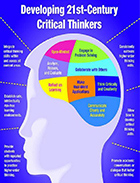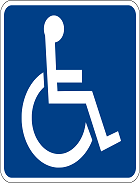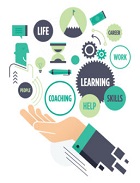Preparing students for life after school
Preparing students for life after school
It has become clear that education is much beyond reading, writing, arithmetic, and reasoning. It lies in learning
 about things that will help in everyday life. All educators wish to see their children become life-long learners, who will think creatively and work independently while preserving and enjoying work-life.
about things that will help in everyday life. All educators wish to see their children become life-long learners, who will think creatively and work independently while preserving and enjoying work-life.What are life skills?
Life skills are a set of skills acquired through direct life experiences that will enable individuals to handle problems encountered in everyday life. Some of the essential skills include critical thinking, problem-solving and the ability to communicate and collaborate with people.
Benefits of life skills
Life skills help children to meet up to challenges of a constantly changing environment. It teaches children to cope with stress, handle frustration and change.
Development of life skills help students find new ways of thinking and problem-solving. They become aware of life decisions and the choices they can make while gaining wide sense of self-appreciation and respect for others.
Apart from gaining academic skills, life skills also help employ individuals who are able to work as a part of a team and possess those abilities that may be beneficial to the company.
Developing life skills also benefits the society at large as individuals learn to recognise cultural diversity and international citizenship. This allows creativity and imagination to grow, leading to a more tolerant society.





















